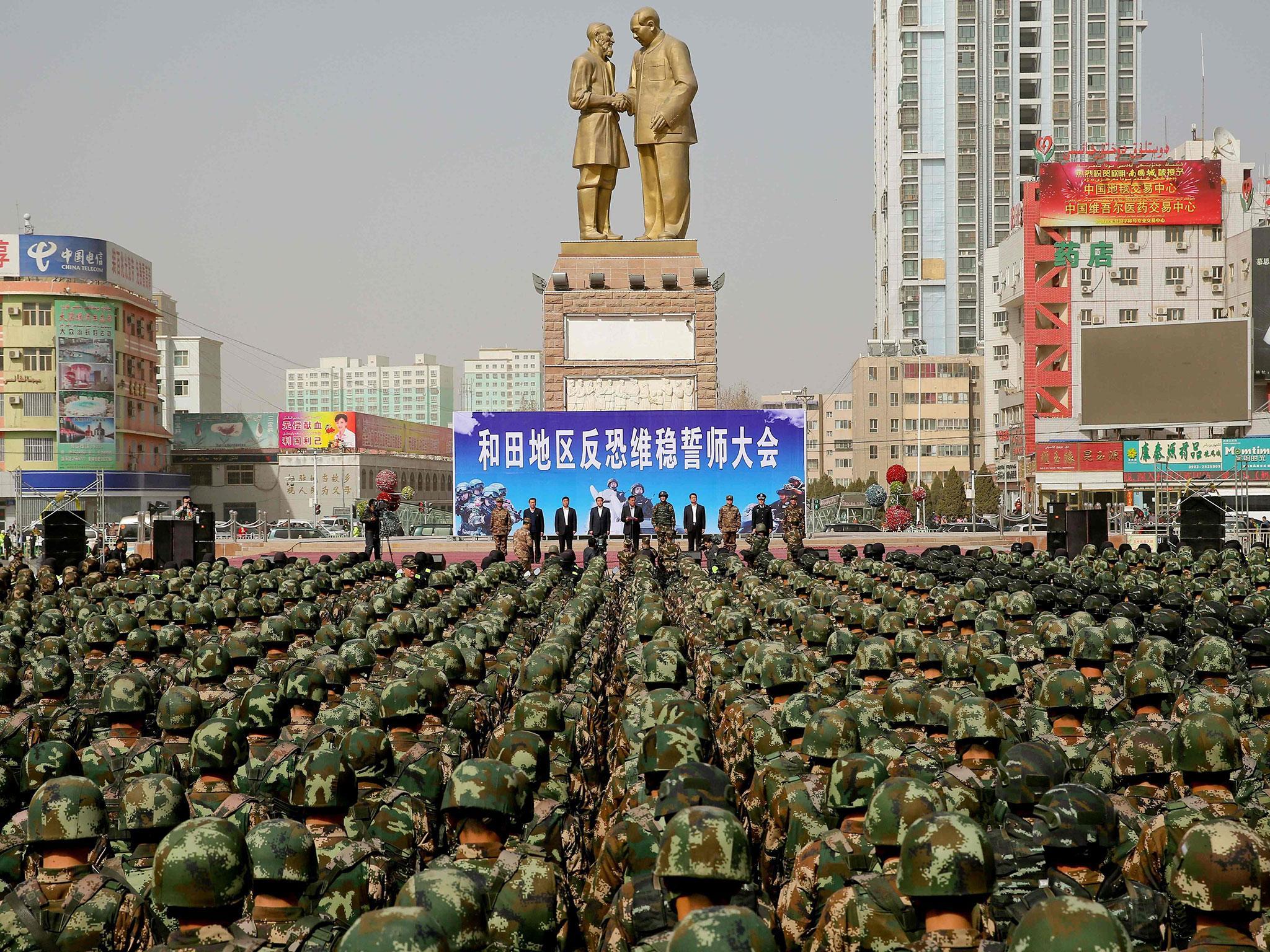China announces plans to increase military spending by 7 per cent
Beijing reduces rate of defence investment in wake of slowing economic growth

China is to increase its military spending by around 7 per cent this year, its government has announced – less than the 10 per cent by which Donald Trump has vowed to grow the US military budget.
The slowdown in defence spending in China reflects what experts say is the Chinese government reducing its military ambitions in the wake of faltering economic growth.
The 7 per cent rise - if there were no changes - would be the smallest since 2010 and marks the second year in a row that the country will not increase its military spending by a double-digit percentage.
It follows nearly 20 years of double-digital budget increases as China sought to rapidly expand its military might.
The actual figure for defence spending in 2017 will be announced on Sunday when the Chinese parliament beings its annual session.
Government spokesperson Fu Ying, who announced the increase, re-iterated the Chinese government’s insistence that its military is purely for defensive purposes.
"Look at the past decade or so, there have been so many conflicts, even wars, around the world resulting in serious, large numbers of casualties and loss of property, so many refugees destitute and homeless. Which one has China caused?" she said.
"We advocate dialogue for peaceful resolutions, while at the same time, we need to possess the ability to defend our sovereignty and interests," Ms Fu said. "The strengthening of Chinese capabilities benefits the preservation of peace and security in this region, and not the opposite."
China unveils 'world's fastest train link'
Show all 2Recent additions to China’s military arsenal include aircraft carriers, long-range bombers and its first overseas military base, located in Djibouti in East Africa.
Earlier this week, Donald Trump promised to increase US military spending by 10 per cent, adding $54 billion to take the overall budget to $603 billion. In contrast, even China’s 7 per cent rise would only bring its military spending to about a quarter of that of the US.
"The gap in capabilities with the U.S. is enormous, but China's military development and construction will continue in keeping with our need to defend our national sovereignty and security," Ms Fu said.
Chinese defence spending would stay at around 1.3 per cent of GDP, she added.
Some military sources said the increase was too small.
“It's not enough," a source with ties to senior Chinese officers told Reuters. "A lot of people in the military won't be happy with this."
Takashi Kawakami, professor of international politics at Japan's Takushoku University, said the small rate of increase showed China was taking a cautious approach with the new U.S. government, especially as Presidents Trump and Xi could meet soon.
"There was a view that China would increase its defence budget in line with the rise of the defence budget in the United States”, he said. “But the fact China kept it at this level means it's in a wait-and-see mode regarding the Trump administration."
Alexander Neill, a senior fellow for Asia-Pacific security for the International Institute for Strategic Studies based in Singapore, said the slowdown in Chinese military spending reflects "the new normal – an acknowledgement that Chinese growth is plateauing as a whole.”
Additional reporting by agencies
Subscribe to Independent Premium to bookmark this article
Want to bookmark your favourite articles and stories to read or reference later? Start your Independent Premium subscription today.

Join our commenting forum
Join thought-provoking conversations, follow other Independent readers and see their replies